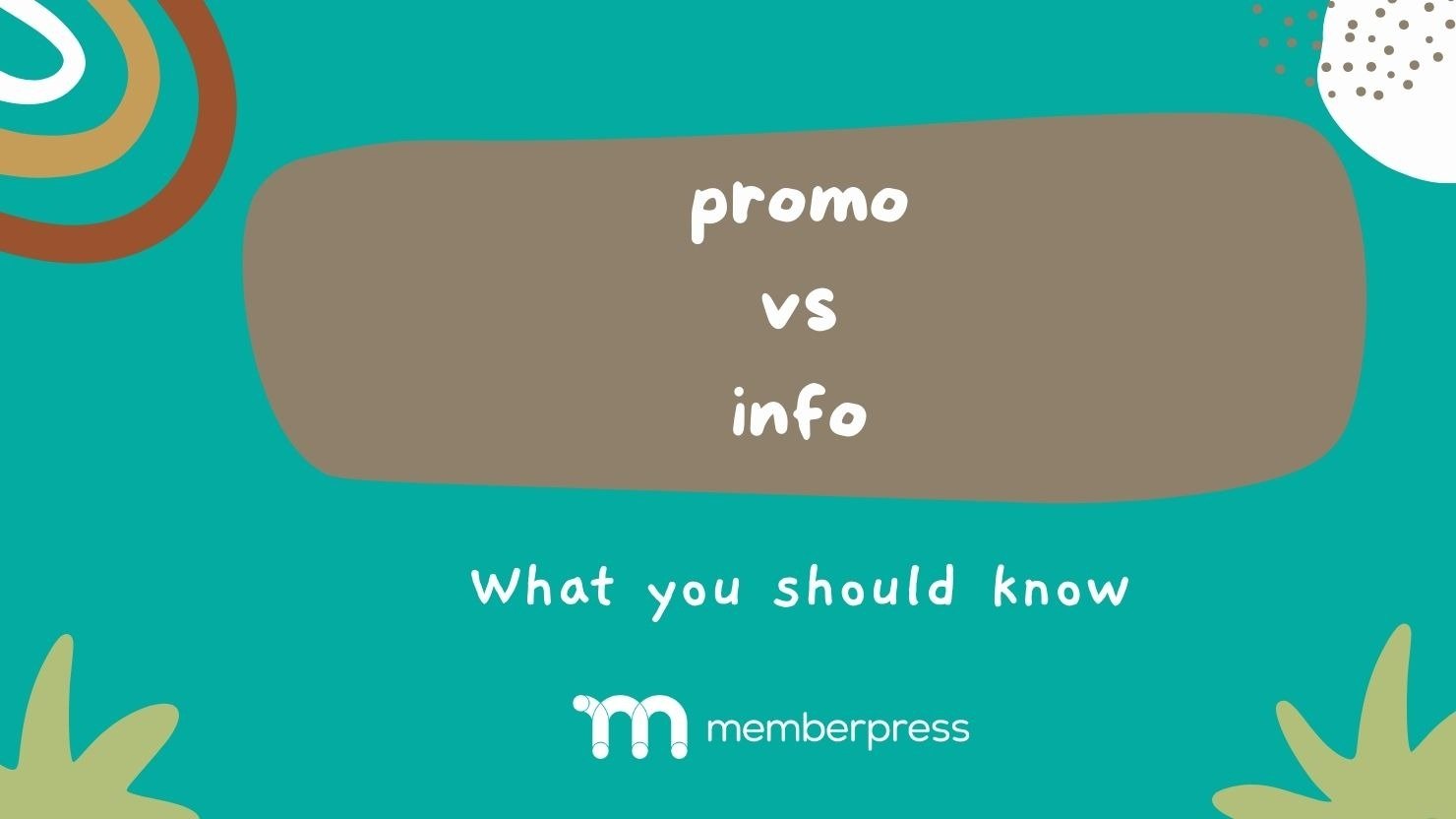By now you’re aware that the content on your website and blog serves a greater purpose. Content doesn’t just exist because you “have” to write it. Content creation and marketing is a must if you want to draw people to your business.
Writing is an effective way to turn followers into customers. Writing both informative and promotional content. So which type are you writing? What are your reasons for writing it? And when should you write it? (And when we say “write,” we're using it as a collective term for producing any type of content, including videos and infographics.)
So, what is promotional writing vs informational content? In this article, we’ll nail down the differences between them and give you tips on the best ways to write both.
What is Promotional Writing?
Have a new ebook or course releasing soon? Offering free trials for a new skin-care line? Promotional content talks about your products and services, notifying followers and readers about them with the intent of marketing those products or services to not only draw in current followers as customers but gain new followers searching for your product.
Promotional content is also sometimes referred to as “decision-making” content because you use it to steer leads further into your sales funnel with the goal of converting them into customers. The best practice in writing this type of content is to show (not tell!) leads and customers how your product or service uniquely benefits them.
So why not write promotional content all the time? If you’re selling something, it’s tempting to continually promote your products (because they’re amazing, of course!).
But you probably know firsthand how annoying those pushy sales types can be. This holds true even more so when you consider that the majority of people searching the internet are looking for information to help them solve a problem rather than for a product to purchase.
There is a time and place for promotional content, though, and we’ll get to that, but let’s first discuss its partner, informational content.
What is Informational Content?
The purpose of informational content is to help answer the questions those in your industry are asking and to provide solutions to the problems they’re experiencing.
Informational content educates your audience and showcases your expertise. The long-term goal is for people to see you as an authority in your field. Once you become an authority, followers are more willing to read your promotional content, and internet searchers are more prone to trust your content.
Pretty easy, right?
It can be. You just need to know a bit about the different types of informational content you should create. Informational content, as stated in our blog on ideal length, is the type that carries the most weight on your website and blog. It contains the information that details your business as a whole.
While these articles generally fall into the long-form content category—1,200-plus words—they don’t always have to. After all, an informative infographic most likely is not 1,200 words.
Writing Informational Content
The goal with informational content is to inform. By providing an overview of a topic related to your business, you give readers a reason to seek out your blog or site. Informational content comes in primarily two different forms: evergreen and time-limited.
Evergreen Content
Evergreen content offers information, including overviews, advice, tips, and explanatory or tutorial material that remains unchanged over time.
Evergreen content, then, is ideal for those long-form content pieces, such as ebooks, e-courses, product demonstrations, and how-to tutorials about your industry and product.
Time-Limited Content
Time-limited content gives readers information that is relevant now, i.e., breaking news and updates on the current trends in your industry. This information becomes “old news” in a relatively short amount of time. That's why it’s important to keep on top of what’s happening in your industry! You want to be one of the first to write about a hot topic.
Make Space for Both
Be sure to appropriately integrate both evergreen and time-limited content into your calendar, meaning don’t always share heavy long-form articles. Not only do they take that much longer to write, but you may be missing out on trending topics that will be no longer relevant by the time you publish them.
So space out those longer informational articles with shorter ones, but always, always make sure your informational articles are written in a tone conducive to instruction rather than sales.
So how do you inform readers without sounding too promotional and also show you’re an industry leader?
Here are a few handy tips:
- Don’t give sales pitches.
- Show your knowledge and authority through well-thought-out, well-researched articles.
- Don’t use persuasive tactics.
- Explain but don’t lecture.
The key is knowing when to share promotional content versus informational content. Because both types have their place on your website and in the world of content.
Once you’ve shown you’re an information leader — a trusted source to turn to when people have a question or experience a problem — you can provide answers and solutions via your products and services.
Think Like a Marketer: 30/60/10
Balancing informational and promotional content isn’t as tricky as you might think. Remember the social media marketing 30/60/10 rule? Thirty percent of the content you share on your social media platforms should be content you own, 60 percent should be content you’ve curated—gathered—from other sources, and 10 percent should be self-promotion.
So if you apply that to content marketing, you should spend 30 percent of your time writing informational articles, 60 percent finding content that is valuable and useful to your readers, and 10 percent writing promotional articles.
The bottom line with informational content is that it shows readers you’re helpful, knowledgeable, and eager to share your insights. When people come to you for information, they’ll also start coming to you for help, which allows you to showcase your promotional content to provide solutions.
Would you agree? Let us know in the comments!













thanks for the giving information.